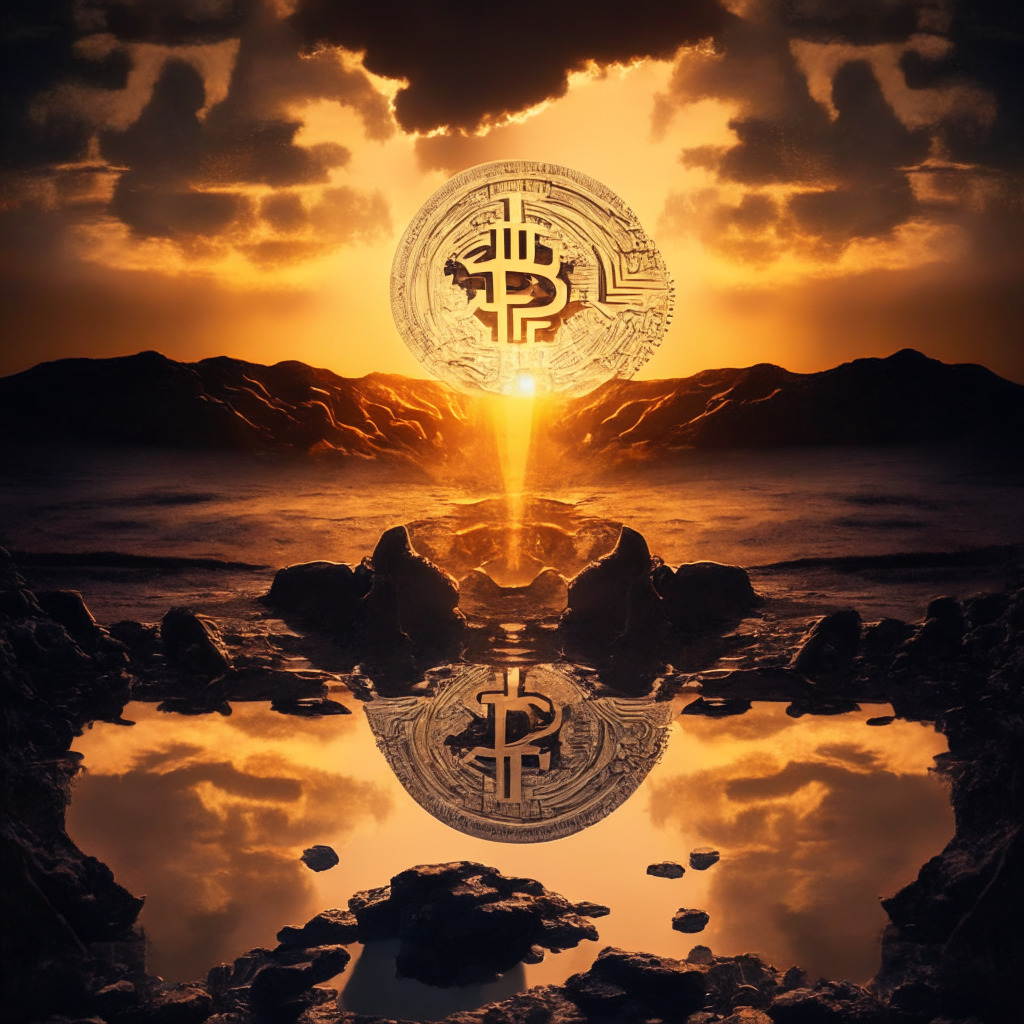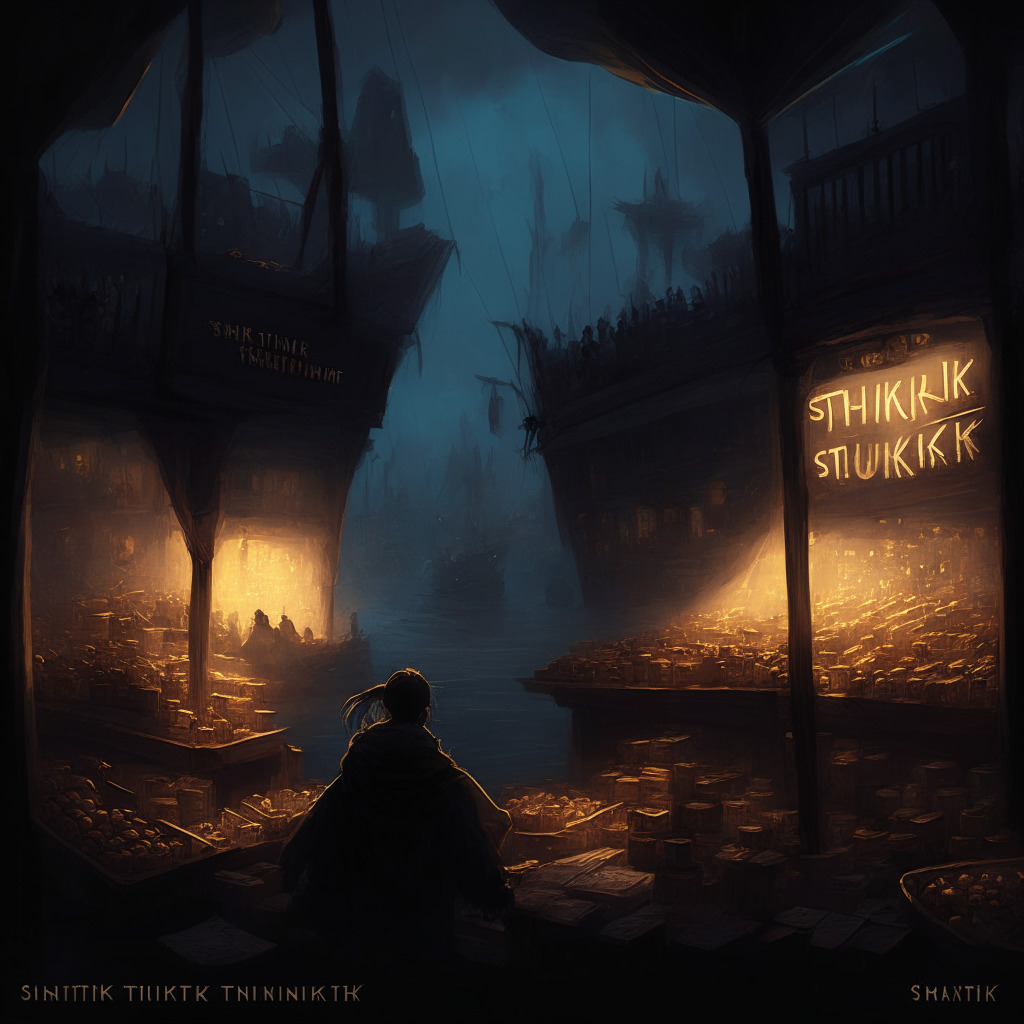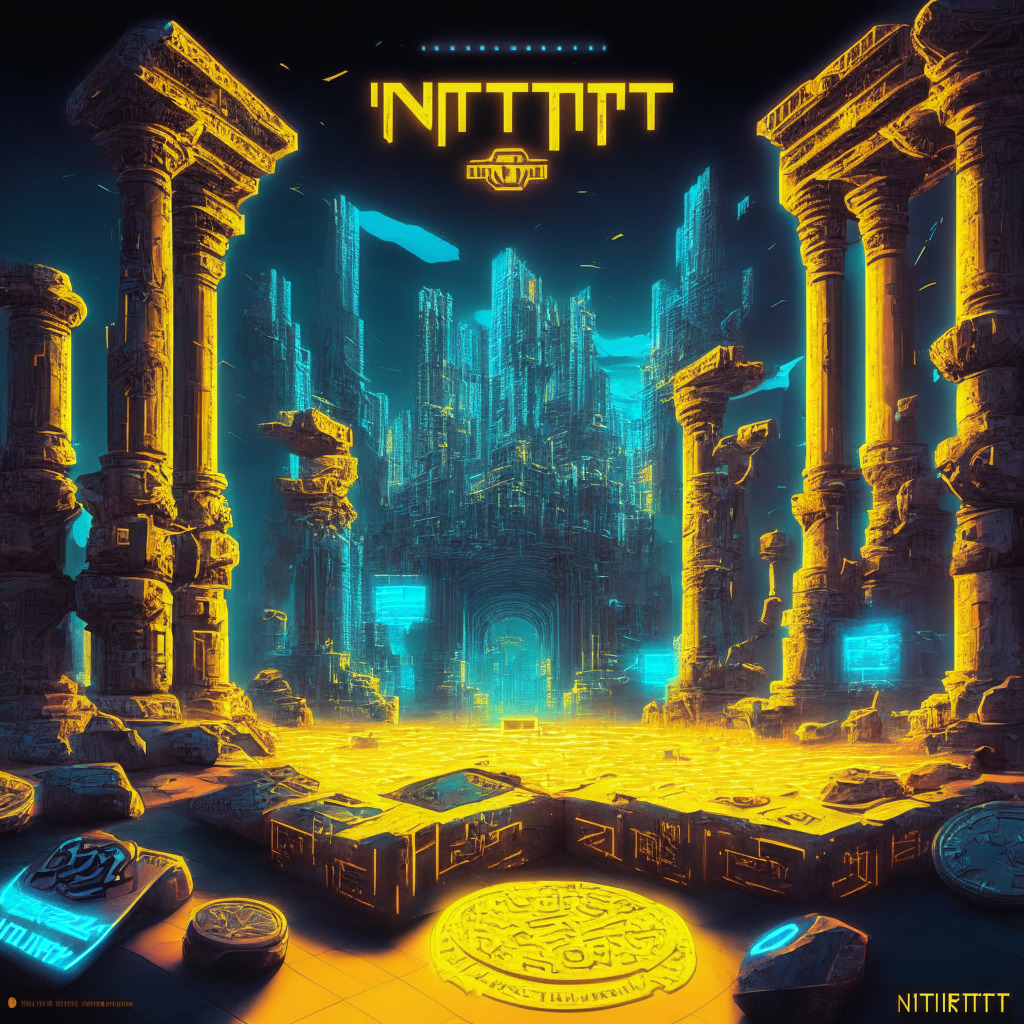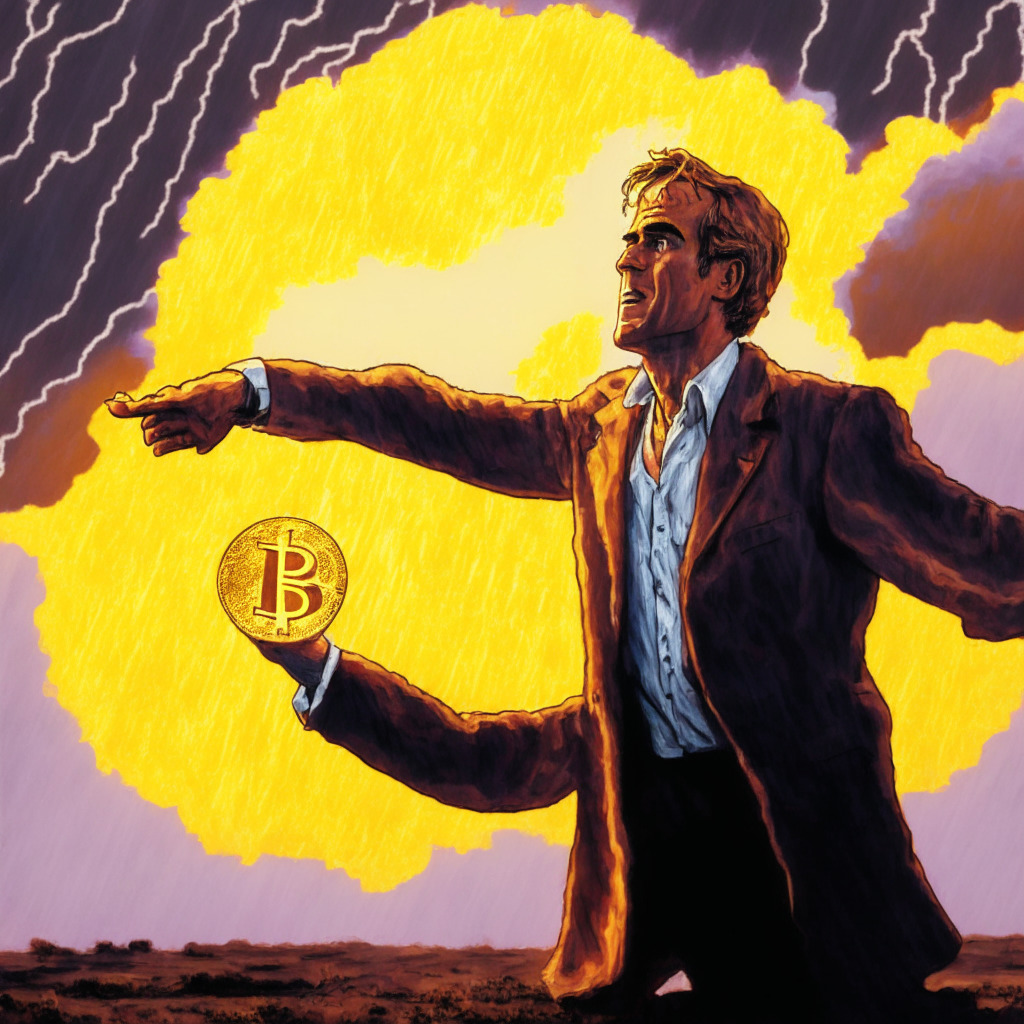“The Shibarium network, highly anticipated by Shiba Inu token holders, faced significant technical issues upon launch, causing a halt in transactions and a dip in SHIB’s value. This has raised concerns about blockchain vulnerabilities, particularly as Shibarium was part of a larger strategy to elevate Shiba Inu from a “meme coin” to a serious blockchain contender.”
Search Results for: Discord
The Ripple Effect of PayPal’s PYUSD: Potentially Forcing a Shift in Stablecoin Regulation Debate
The launch of PYUSD, a stablecoin backed by PayPal with over 430 million users, may accelerate crypto adoption and prompt a shift in U.S. policy towards crypto regulation. Despite previous hesitations, the massive user base might force lawmakers to urgently develop a comprehensive regulated framework for stablecoins, heralding a new era of American crypto companies demanding inclusion in economic life.
Sei: New Trading-Focused Blockchain Star Amid Controversies and Growing Expectations
“Sei, a trading-focused blockchain network created by Jump Crypto and Multicoin Capital, debuted a market cap of over $400 million. Despite a successful launch, controversy over a delayed airdrop and eligibility issues, coupled with a lack of transparency, have raised concerns. 40% of SEI’s circulating supply is for the team and private investors, 48% for airdrops and ecosystem reserves, with the rest for the SEI Foundation and Binance launchpool incentives.”
Singapore’s Legal Tug of War: Bankrupt Blockchain Hedge Fund vs Investment Firm
The legal dispute between bankrupt blockchain hedge fund, Three Arrows Capital, and DeFiance Capital, an investment firm, centers around the distribution of DeFiance’s assets. As per 3AC liquidators, these should be included in the 3AC bankruptcy estate for creditor distribution. However, DeFiance asserts that the assets should be divided among its investors. The conflict over assets, valued differently by each entity, reveals a discord on blockchain technology’s regulatory ambivalence and the determination of firms like DeFiance Capital to protect investor interests.
Unmasking the Phantom Menace: The Uncanny Links Among Crypto Scammers & the Fight to Secure Blockchain
“In the world of cryptocurrencies, anonymous scammers like “Faint” pose significant threats, having reportedly stolen approximately $1M in digital currencies. Blockchain security firm CertiK underscores the need for proactive measures, such as Wallet Guard and Pocket Universe, to alert users of potential threats. Balancing security and privacy remains an ongoing challenge in the cryptoverse.”
Striking the Golden Balance: Centralization vs Decentralization in Ethereum’s Liquid Staking Landscape
“Ethereum is on the verge of transformative change thanks to liquid staking. While centralized liquid staking protocols currently dominate, they pose systemic risks. Decentralized protocols exist, but face scalability issues and have a small portion of ETH staked. The challenge is to strike a balance between scalability and decentralization, potentially by reducing the minimum capital requirement to run a validator node.”
Unlocking the Potential: SAND Token Embraces Market Flood and Its Impacts
Metaverse platform, Sandbox’s native currency, the SAND token, is set for an unlocking period starting from Monday, releasing 332 million tokens, or over 16% of the circulating supply into the open market. Despite potential bearish trends, this gives token holders their first opportunity to sell positions.
Aragon Association’s Decentralization Dilemma: Facing Pressure from Activist Investors
The Aragon Association, a Swiss-based, decentralized governance-focused cryptocurrency project, wrestles with pressure from activist investors keen on its $180 million treasury. Amidst allegations of legal violations and inefficient management, Aragon contemplates selling the project to an undisclosed buyer. A complex power and influence struggle brews within Aragon’s governance structure.
The Dilemma of Terra Luna Classic (LUNC) and the Rise of XRP20: A Cryptocurrency Analysis
Terra Luna Classic (LUNC) saw a 1% climb to $0.00007818 recently, but this doesn’t overshadow its long-term decline, primarily due to community discord about its development. A proposed burning of ~$800 million in LUNC’s associated stablecoin received meager support, hampering recovery possibilities. Meanwhile, ERC-20 token XRP20 shows promising growth potential.
PayPal’s Entry Into Crypto: A Boon to the Industry or Threat to Web3’s Future?
“PayPal’s announcement of a stablecoin on Ethereum, followed by imposter tokens looking to cash in on its success, indicates possible future rug pulls. PayPal’s decision to operate within the established financial system counters crypto’s aim to break from traditional financial structures. It boosts crypto’s credibility, yet risks changing Web3’s face.”
Cypher’s Crypto Robbery During Hacker House: Unveiling Blockchain Security Pros, Cons and Controversies
“A security incident resulted in the loss of $400,000 from Cypher, a Solana-based decentralized exchange. Seeing Cypher’s team attempt to negotiate with the hackers highlights the importance of robust security and reveals that asset recovery is possible with careful strategy, despite potential risks.”
Worldcoin: A New Era of Digital Identity or a Privacy Nightmare? Debating the Pros and Cons
Worldcoin, a novel blockchain technology, offers a unique digital ID through an iris scan, potentially opening up universal basic income opportunities. However, concerns about data privacy, verification issues, and the bleak market for AI tools pose significant challenges. While predicting its success is uncertain, its development signals a ripe opportunity with both risks and rewards.
Interplay of Regulatory Oversight and Crypto Growth: A Closer Look at the CoinGecko Index
CoinGecko, a trusted cryptocurrency data platform, has launched an index delineating the largest crypto tokens classified as securities by the US SEC. These coins amount to a whopping $84.9 billion of the total crypto market, approximately 7.5% of the total capitalization. This reveal incites ongoing conflict between crypto industry and regulatory bodies.
NFT Market Conflicts: Lower Royalty Rates Threaten Artist Engagement Amid Trading Surge
Tensions escalate in the NFT market as leading exchanges lower royalty rates for artists to boost trading activity amid a significant market downturn. However, this makes maintaining creators’ enthusiasm to produce new digital artworks more difficult, potentially further impacting the market.
Matter Labs vs Polygon: Open-Source Code Controversy Shakes Ethereum’s Layer 2 Community
Polygon has accused Matter Labs of using their open-source code without proper attribution in developing its zkSync rollup. This allegedly violates the open-source ethos, which forms a fundamental aspect of blockchain projects, thereby fostering discord in the ecosystem.
Metaverse Losses and Blockchain Gaming: Navigating the Unchartered Waters of Cryptocurrency Integration
“Facebook’s Meta invests heavily in the metaverse despite losses, while in the blockchain gaming space, Alchemy: Battle for Ankhos integrates cryptocurrencies and AI. Meanwhile, Ultra, a crypto gaming startup, builds a tournament platform with its blockchain network for the thriving eSports industry.”
Bankruptcy Battle: FTX’s Controversial Plan for Creditors and Its Impact on Crypto Industry
“The new FTX management proposes a novel approach to handle creditors’ claims following the crypto exchange’s bankruptcy, stirring varying sentiments. This includes differentiation of creditors and excluding FTX’s exchange token holders from any distributions. These decisions, deemed a possible detriment to industry principles, have sparked criticism from the Unsecured Creditors Committee and FTX 2.0 Coalition.”
Decentralized Freelance Giant DeeLance Shakes Up $761 Billion Recruitment Sector: A New Era Dawns
“Decentralized freelance platform, DeeLance, is set to innovate the $761 billion recruitment sector. Raising $1.7million in presale, the native currency $DLANCE is expected to rise by 20%. DeeLance envisions a crypto and NFT-driven metaverse for freelancers, offering a $100K $DLANCE token giveaway and promising secure, low-fee working environment with verifiable ownership transfer via NFTs.”
The Curious Case of Curve Finance’s $5.4M Recovery: Triumph Amid Disaster or a Stumbling Block?
An ethical hacker, known as “c0ffeebabe.eth”, has recovered roughly $5.4 million for DeFi protocol Curve Finance following a devastating hack. Despite this, concerns around fraudulent schemes and market instability have risen post-recovery, raising questions about Curve Finance’s future.
Vyper Language Vulnerability Alarms DeFi Space: Pitfalls and Lessons Learned
“A vulnerability in the Vyper programming language led to several DeFi exploits, highlighting the potential risks of the sector. However, the incident has underscored the importance of rigorous smart contract auditing and proactive security measures, ensuring the DeFi ecosystem’s future resilience.”
Navigating the Future of Freelancing with DeeLance: Blockchain Integration and NFT Tokenization
“DeeLance, a blockchain-based freelance platform, offers transparency, security, and new NFT applications for tokenizing work products. Its decentralized nature combats issues like excessive commission fees, unclear deals, and entry barriers, fostering a healthier and fairer ecosystem for freelancing.”
Unmasking Crypto Anonymity: The Controversy and Consequences of Arkham Intel Exchange
Arkham Intel Exchange, a new platform offering monetary rewards for identifying anonymous crypto users, is sparking debate within the digital currency industry. Despite privacy concerns, many are utilizing the service to expose those behind major crypto exploits. Arkham exemplifies the intricate balance between crypto’s privacy struggle and the desire for transparency.
North Korean Blockchain Heist: Unraveling the $37.3M CoinsPaid Cyber Breach
“Cryptocurrency platform CoinsPaid experienced a breach resulting in a $37.3 million loss, suspected to be orchestrated by state-backed Lazarus Group. Depicting the latent risks of crypto and systemic vulnerabilities, the incident emphasizes the necessity for robust security measures in the crypto-space.”
The Unraveling of Hector Network: Decentralization Predicament and the Illusion of Quick Exits
The formerly $100 million treasury of stablecoin project, Hector Network, has collapsed to $16m following the Multichain bridge’s demise. The DAO’s liquidation process is causing community frustration given its complexity and projected 6 to 12-month timeframe. Hector’s endeavors beyond stablecoin, including a token launchpad and NFT marketplace, might have diluted its focus and deepened the treasury situation.
Unmasking Robert F. Kennedy Jr.: Journey from Bitcoin Skeptic to Advocate and The Implications
Robert F. Kennedy Jr. recently revealed his membership of the Bitcoin brigade, despite earlier contestations. This change occurred post-attendance at the Miami-based Bitcoin Conference. Kennedy’s decision to purchase and publicly support Bitcoin however, raises questions about potential conflict of interest, especially with regards to future legislation under Kennedy’s potential presidency.
Twitter to X.com: The Great Migration of Crypto Enthusiasts and the Rise of Decentralized Platforms
“The rebranding of Twitter to X.com signals a shift in the cryptocurrency and social media worlds, spurred by Elon Musk. However, its decline and restrictive actions are leading crypto enthusiasts to consider alternate platforms, indicating a complex transition underscored by the importance of personal networks accrued over time.”
Cosmos: Shaping the Future of Blockchain or Becoming Obsolete in the Process?
“Despite a promising start, recent times have not been favorable for Cosmos. Developers veered away after the catastrophic crash of Terra, and substantial liquidity drop deterred integration of apps into the Cosmos ecosystem. Severe community management issues and the emergent competition from blockchain-in-a-box projects have triggered uncertainties about Cosmos’s future and identity.”
The Satoshi Nakamoto Controversy: Analyzing Craig Wright’s Legal Battles and Cryptocurrency Control
Craig Wright, who claims to be Satoshi Nakamoto, the innovator of blockchain, is under heavy scrutiny. Having to secure £400,000 before pursuing claims against Coinbase and Kraken, due to his dubious financial connections, there’s uncertainty over his actual ownership of $143 million in cryptocurrency. Such doubts highlight the need for transparency in cryptocurrency management.
Unmasking Bitcoin: Environmental Villain or Climate Change Combatant?
This excerpt spotlights a less-known aspect of bitcoin mining: its tendency to exploit the cheapest available electricity, regardless of location. It also notes how bitcoin can incentivize cleaner, more efficient energy practices through waste mitigation and electrification of heating, potentially creating a future of environmentally friendly energy consumption.
Ripple CEO Against SEC’s Crypto Regulation Approach: Searching for Balanced Legislation
“The discord between Ripple Labs and the SEC reflects global uncertainty on the legal status of cryptocurrencies. CEO Brad Garlinghouse criticizes the SEC’s regulatory approach, leading to investor losses and seemingly unnecessary trials, advocating for efficient legislation over ‘more regulation by enforcement.'”
Unraveling the FTX’s Ex-CEO Fraud Allegations: A Closer Look Into Crypto World’s Dark Side
Sam Bankman-Fried, former CEO of FTX, faces serious charges, including fraud and money laundering. Prosecutors are concerned about a breach related to revealing a private diary belonging to a government witness, disrupting the fair trial process. This revelation prompts a reevaluation of digital currencies’ reliability and the need for regulations to prevent misuse.
Shaking Up the Crypto Regulation: Is the SEC Missing the Boat?
“Congressman Ritchie Torres criticizes the SEC’s inconsistency in crypto regulations, creating uncertainty. Following the Ripple Labs case ruling, which denotes XRP isn’t a security, the SEC’s crackdown on crypto is scrutinized, highlighting the need for clear, consistent guidelines in the evolving digital marketplace.”































